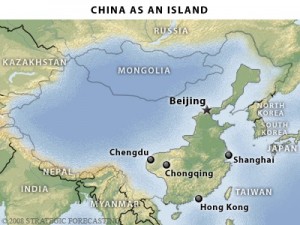It occurred to me that what with one thing and another the significance of today’s referendum in Ireland may be lost on many readers of Chicagoboyz. Somehow Ireland, both North and South, have become less important on the other side of the Pond, now that Sinn Fein has been safely installed in the Ulster Assembly. There are, however, other issues at stake.
Let me recap. The Lisbon Treaty is a regurgitated version of the Constitution for Europe, the previous treaty agreed on by the previous Inter-Governmental Conference (IGC) of the European Union. The Constitution, a whacking document of several hundred pages that laid down rules for just about everything though, to be fair, many of them had already existed in other treaties, was rejected in two referendums in 2005. The two were in core members of the European Union: France and Netherlands.
There followed a period of flurried activity, led by the Commission, specifically by the ditzy Margot Wallstrom, who is in charge of communications, that is, propaganda. She even set up a blog, which was so dull that even the eurosceptics who kept posting responses to her fluffy pieces, gave up after a while.
The idea was that the EUrocracy would have a dialogue with the people of Europe and find out their opinion. The fact that the opinion had already been given in two countries seemed to be irrelevant. In the fullness of time there was another IGC and another treaty, the Lisbon one, which was, apart from a few unimportant details, exactly the same as the Constitution. Because it was laid out differently, all EU member states were told that this was different and, therefore, there will be no referendums, even though serious constitutional changes were being proposed.
The Irish Supreme Court decided that, according to the Irish constitution, there will have to be a referendum and one duly took place. Well, blow me down. The people voted the wrong way and were told to vote again. The second referendum is taking place today and, naturally, we are all hoping that the Irish will prove to be as recalcitrant as they have been throughout their history.
In the meantime, all but two other member states have ratified. In Germany the parliament had to pass a number of laws to bring the German Constitution in line with the Lisbon Treaty as instructed by the country’s Constitutional Court. In the Czech Republic the treaty has been returned to the Constitutional Court by a number of Senators and the President is waiting for the decision. He is reluctant to sign but will probably have to if the legal decision goes the wrong way. Following that Poland will sign. This, of course, depends on an yes vote today in Ireland. If, on the other hand, the Irish vote no again, we shall have an interesting situation. Will the EU demand a third referendum or will they, as is much more likely, take this treaty off the table, push through as much of it as possible on the quiet and call another IGC to produce another document in a couple of years’ time.
Either way, the whole process has been incredibly painful for the European Union, its bureaucracy and supporters. The gloss has gone completely, the process is no longer inevitable and the nasty bits – lies, bullying and cheating to get their way – are showing.
For any glutton for punishment, I have more on Your Freedom and Ours.
